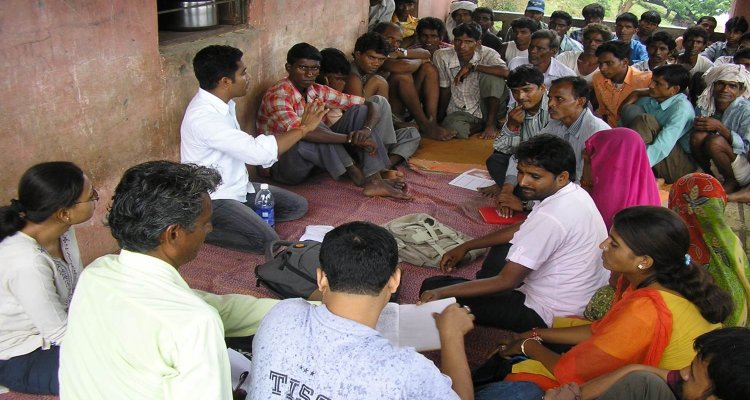
Project
Climate proofing pilot
Climate change and its effects are noticeable in India, though its influence on people’s livelihood differs from region to region. Downscaling of global climate scenarios may give an indication of the expected change and variability in climate at the local level.
In this project climate projections were combined with other major changes in society to build plausible scenarios for the future. The idea is that this might help to formulate new directions of development and to prioritize supportive measures. Alterra participated with local organizations and supporting institutes in this process and providing both process and technical, climate-related support.
As there was little experience with this kind of integrated climate-related activities at the local level a pilot was set-up with a partner organisations in India.

The approach was applied in two ICCO projects in India:
- 2010 Udaipur, Rajasthan on communities with Seva Mandir
- 2011 Anantatur, Andhra Pradesh on a specific measure with Accion Fraterna
Results
Farmers note that local weather predictions are not reliable anymore. Temperature rise is mainly noticed as increase in drought. However some farmers irrigate for cooling the plants. Minimum temperatures in the rainy season tend to go down. During the monsoon, rainfall is heavier. However, less rainy days are noted (from 40 to 20 days) with longer dry spells in between. Intensive rainfall leads to run-off and water loss, erosion and sedimentation, however this is not experienced as the most important problem.
Services provided by Wageningen Environmental Research (Alterra)
- Down-scaling of global climate models towards local meteorological data (in India);
- Provision of climate scenarios for the concerned area at relevant local scale;
- Assessment of midterm climate change impacts and analysis of the effectiveness of already proposed measures (climate proofing);
- Assessment of scenarios based on long term climate and socioeconomic trends, the assessment of options and formulation of adaptation strategies;
- Identification of measures and the formulation of a plan for implementation, monitoring and evaluation.